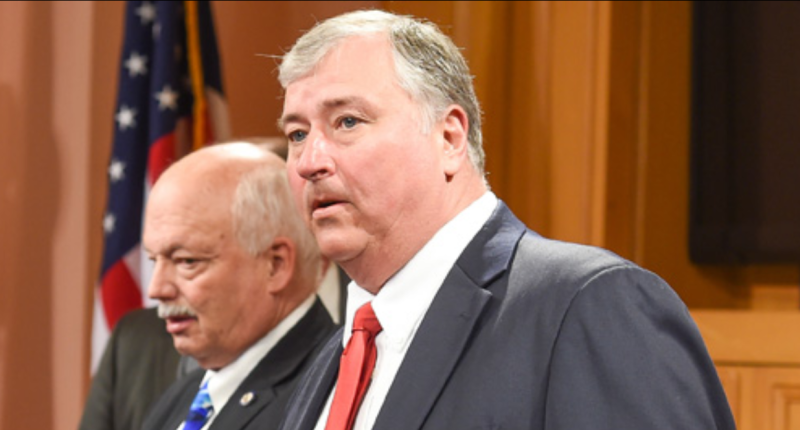A high-profile political court case in Ohio could provide a playbook for how Fulton County District Attorney Fani Willis will try to convict Donald Trump and his co-defendants of racketeering charges, USA Today reported Friday.
The former president and 18 of his associates are facing charges in Georgia under the Racketeer Influenced and Corrupt Organizations Act (RICO), over a plot to overturn the election results in that state — a scheme that involved everything from pressuring election officials to alter or delay certifying results, declaring a list of fake electors to get Congress to throw out the real ones, and even breaking into voting equipment in a rural county south of Atlanta.
As it turns out, wrote Jessie Balmert for USA TODAY, Republicans have a recent example of a political RICO case to show them how this could play out: the FirstEnergy scandal in Ohio that ultimately landed the Republican former state House Speaker, Larry Householder, in prison.
POLL: Should Trump be allowed to run for office?
"The Ohio pay-to-play scheme involved trading about $60 million in donations from Akron-based FirstEnergy and its allies for a $1.3 billion bailout benefiting two nuclear plants owned by FirstEnergy Solutions," Balmert wrote.
"Those donations helped Householder win control of the Ohio House of Representatives, pass the bailout in House Bill 6 and defend the law against a ballot initiative to block it."
In that case, she noted, there were four co-conspirators charged: "Political strategist Jeff Longstreth handled the flow of money. FirstEnergy Solutions lobbyist Juan Cespedes helped craft the law with Householder's staff. Lobbyist Neil Clark served as Householder's 'proxy.' Borges bribed political operative Tyler Fehrman for inside information about the ballot initiative."
This case, wrote Balmert, is important to Willis' Georgia case for a number of reasons.
For one thing, like Trump, Householder wasn't involved in every single meeting or bribe that took place but, as the federal prosecutor in charge of the case said, “Mr. Householder did not act alone, but he was at the top.
"He benefited the most because the enterprise was set up to benefit his political machine” — which illustrates that Trump similarly didn't need to be hands-on for it to still be evidence against him.
For another, in the FirstEnergy case, Householder's co-conspirators Longstreth and Cespedes ultimately turned against him and testified — and Trump has 18 alleged co-conspirators, any of whom could turn witness for the prosecution.
On the other hand, Balmert noted, there is one other aspect that highlights the difficulty of these cases: the trial took two and a half years from arrest in 2020 to conviction this January — suggesting that Willis has her work cut out trying to wrap everything up by the presidential election next year.
Leave a Comment
Related Post
